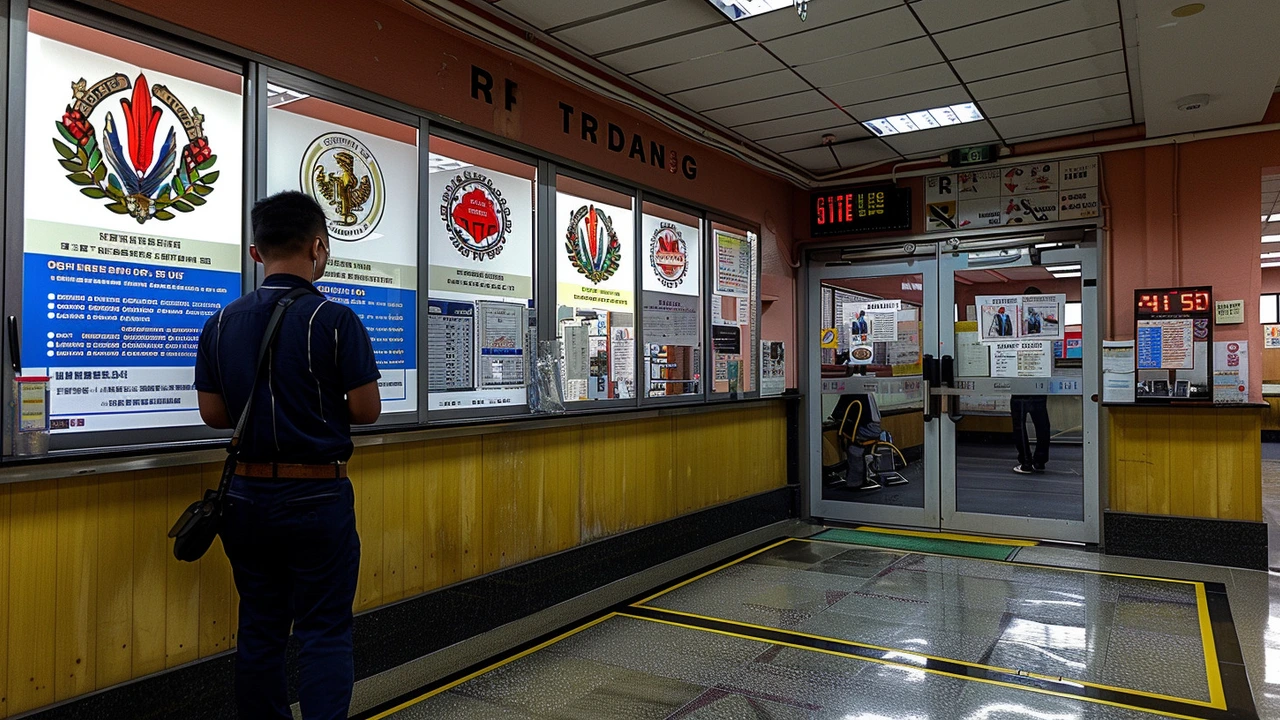Overseas Singaporeans Affected by Erroneous Voting Confirmation
An administrative error by Singapore's Elections Department (ELD) led to a surprising and misleading development for thousands of the nation's citizens living abroad. In an unintentional oversight, approximately 6,500 overseas Singaporeans received an e-mail on May 24th stating they had successfully registered to vote from overseas. This unexpected communication caused a minor frenzy among recipients, who had initially applied to register as overseas electors, only to discover that the confirmation was a result of a programming glitch.
The Error Unfolds
According to ELD, the incident was the result of an intricate programming mistake. Unlike typical electoral mishaps, this wasn't a cyber-attack or a breach of sensitive data. Instead, it was a glitch in the electronic system used to manage overseas voter registration. The emails, which should have provided accurate updates on the status of the registrants' applications, wrongly indicated approval despite none of the applications being processed to completion.
Swift Action Taken
Upon realization of this error, ELD acted promptly, ensuring that affected individuals were immediately informed to disregard the erroneous message. An official statement clarified that there had been no compromise of personal data and that the error was purely automated. While recipients initially experienced confusion and concern, the department’s quick response helped mitigate misunderstandings and prevented potential chaos within the voter registration system.

Implications for Electoral Integrity
This incident, trivial as it may seem in isolation, touches on a much larger issue — the integrity and reliability of electoral processes, especially in a technologically-driven era. With a general election looming on the horizon, projected to take place by November 2025, the importance of accurate and error-free administration of voter registrations cannot be understated. Such errors, even when promptly corrected, shake public confidence and draw attention to the vulnerabilities within the existing systems.
Emphasizing Cybersecurity and System Checks
While this particular instance was not a result of a security breach, the episode serves as a stark reminder for electoral bodies worldwide to prioritize cybersecurity and rigorous system checks. Future-proofing such important national processes involves not only intricate programming but also meticulous testing, regular audits, and transparency in communication. The systems managing voter data and electoral processes must be robust enough to handle both deliberate attacks and accidental glitches.
Public Response and Perception
Public reaction to this incident has been mixed. Some applauded the ELD for promptly addressing and communicating the issue, averting a potential crisis. Others expressed concern over the reliability of automated systems, questioning whether more stringent checks should be in place to avoid repetition. This incident is likely to fuel ongoing debates about the modernization of electoral systems and the balance between embracing technological advancements and securing traditional practices.

Looking Towards the General Election
As the general election slated for November 2025 approaches, ELD and other relevant bodies will undoubtedly place a renewed focus on refining their processes. Ensuring the accuracy of voter registrations, especially for overseas Singaporeans who already face logistical challenges in participating in their homeland’s democratic processes, is crucial. The mishap has, inadvertently, highlighted both the challenges and the necessity of maintaining transparent, reliable systems for voters, regardless of their location.
A Call for Vigilance
This incident is a call to all electoral departments to remain vigilant, proactive, and committed to continuously improving their processes. Mistakes can occur, but how they are managed and learned from ultimately shapes the integrity and reputation of the electoral body. The Elections Department in Singapore has turned this minor crisis into an opportunity for growth and resilience, setting an example of transparent communication and swift corrective action.
The future of electoral processes rests on a delicate balance of embracing innovation while safeguarding against errors. For the approximately 6,500 overseas Singaporeans affected, this incident may serve as a reminder of the importance of diligence in maintaining their democratic rights and staying informed. For ELD, it is a lesson in maintaining rigorous standards and always striving for accuracy in the service of democracy.


